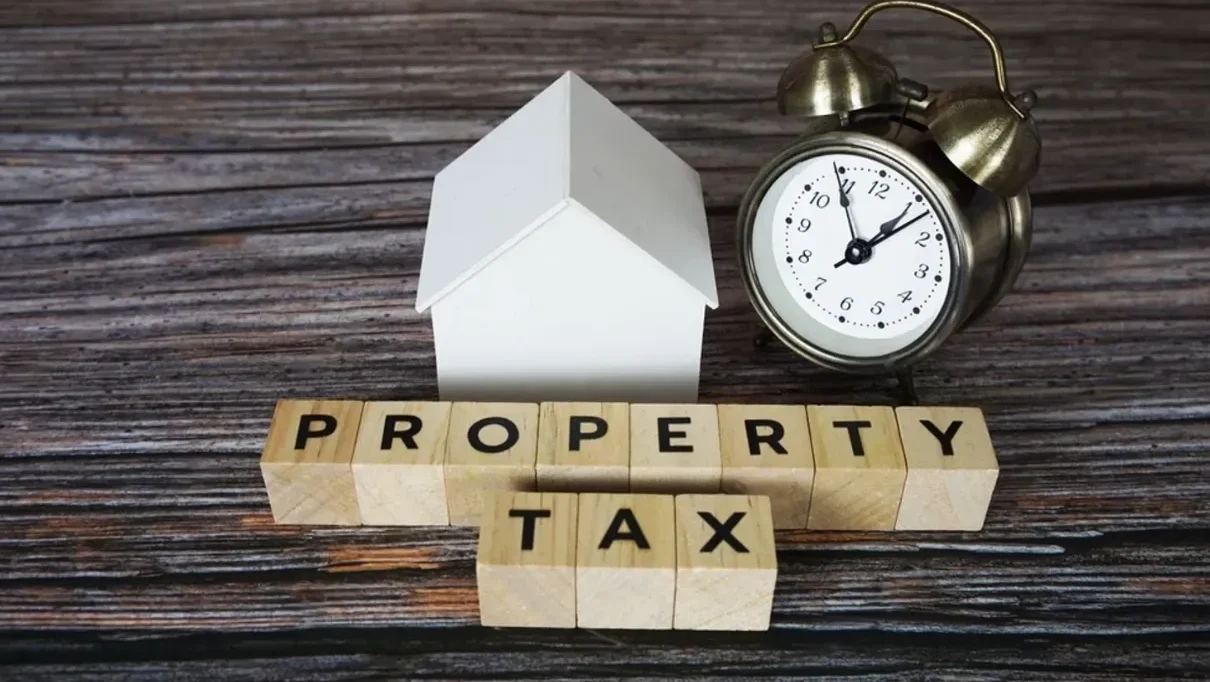
Property taxes are a major expense for homeowners and commercial property owners, often representing one of the largest annual costs tied to real estate ownership. If your property is overvalued by your county appraisal district, you could be paying more than your fair share. Protesting your property tax assessment is a powerful way to correct overvaluations and reduce your tax bill, but the process is complex, time-consuming, and filled with potential pitfalls. While it’s possible to protest on your own, hiring a property tax consultant can significantly increase your chances of success and maximize your savings. This comprehensive guide explains why a consultant is essential, detailing their expertise, efficiency, and value in navigating the protest process.
The Challenges of Protesting Property Taxes
Before exploring the benefits of hiring a consultant, it’s important to understand why protesting property taxes can be daunting. The process involves several steps, each requiring specific knowledge and skills:
- Tight Deadlines: You typically have 30–45 days from receiving your appraisal notice to file a protest. Missing this deadline means waiting another year.
- Complex Evidence Gathering: You must collect comparable sales data, document property issues, and identify appraisal errors, which requires research and analysis.
- Technical Procedures: Filing forms correctly, scheduling hearings, and adhering to local rules can be confusing, especially for first-timers.
- Persuasive Presentation: At the Appraisal Review Board (ARB) hearing, you need to present a compelling case with clear evidence, often under time constraints.
- Local Expertise: Appraisal districts vary by county, with unique valuation methods and procedural nuances that can affect your case.
Attempting to navigate these challenges without experience can lead to mistakes, missed opportunities, or a weaker case, reducing your chances of lowering your assessment. A property tax consultant brings specialized skills to overcome these hurdles, making the process smoother and more effective.
What Does a Property Tax Consultant Do?
A property tax consultant is a professional with expertise in property tax assessments, local appraisal processes, and market analysis. Their role is to represent your interests and secure a fair valuation for your property. Here’s a breakdown of their key responsibilities:
- Guide You Through the Process: They explain the protest steps, your rights as a taxpayer, and the local appraisal district’s requirements, ensuring you’re fully informed.
- File Your Protest on Time: They handle the paperwork and submit your protest by the deadline, avoiding delays or rejections due to errors.
- Gather and Analyze Evidence: Consultants collect data from public records, recent sales, and your property’s condition to build a robust case.
- Develop a Market-Based Strategy: Using comparable sales and local valuation trends, they craft an argument for a lower, fairer assessed value.
- Represent You at Hearings: They present your case to the ARB, respond to questions, and advocate on your behalf, often achieving better outcomes than self-representation.
By handling these tasks, consultants save you time, reduce stress, and improve the likelihood of a successful protest.
Top Reasons You Need a Property Tax Consultant
Hiring a consultant isn’t just about convenience—it’s about leveraging expertise to achieve tangible financial benefits. Here are the top reasons why a consultant is essential for your property tax protest:
1. Expertise in Local Appraisal Processes
Property tax laws and appraisal methods vary significantly by state and county. A consultant has in-depth knowledge of your local appraisal district’s practices, including how they determine values, what evidence they prioritize, and common errors they make. For example, they might know that your county overvalues properties in certain neighborhoods due to outdated data or fails to account for exemptions like homestead or veteran discounts. This local expertise allows them to tailor your protest to the specific nuances of your district, increasing your chances of success.
Example: In a county that heavily weights recent sales, a consultant might focus on finding comps from the past six months, while in another that emphasizes property condition, they’ll highlight repair needs with photos and estimates.
2. Access to Robust Market Data
A strong protest relies on evidence, particularly comparable sales (comps) that show your property’s market value is lower than the assessed value. Consultants have access to comprehensive databases and tools that provide accurate, up-to-date sales data, often beyond what’s available on public websites like Zillow or Redfin. They analyze this data to select the most relevant comps—properties similar in size, age, location, and condition—to build a persuasive case.
Additionally, consultants understand local market trends, such as declining values in certain areas or zoning changes that affect commercial properties. This allows them to argue effectively that your property’s assessment doesn’t reflect current realities.
Example: If your home is assessed at $450,000 but similar homes sold for $400,000, a consultant will use detailed comps to argue for a $50,000 reduction, potentially saving you $1,250 at a 2.5% tax rate.
3. Time and Effort Savings
Protesting your property tax involves significant time and effort—researching comps, gathering documents, filing forms, and preparing for hearings can take dozens of hours. For busy homeowners or business owners, this can be a major burden. A consultant takes on these tasks, allowing you to focus on your daily responsibilities. They streamline the process by:
- Quickly identifying errors in your appraisal notice.
- Efficiently collecting and organizing evidence.
- Handling all communication with the appraisal district.
- Preparing and delivering a professional presentation at the ARB hearing.
This efficiency is especially valuable for commercial properties or high-value homes, where the stakes (and potential savings) are higher.
4. Higher Success Rates
Studies and industry insights suggest that protests represented by professionals are more likely to succeed than those handled by property owners alone. Consultants know how to present evidence persuasively, anticipate appraisal district counterarguments, and navigate ARB expectations. Their experience with hearings—often dozens or hundreds per year—gives them an edge in articulating your case clearly and confidently.
For example, a consultant might know that your district responds well to visual aids, like charts comparing comps, or that emphasizing property damage over market data is more effective in certain cases. This strategic approach can make the difference between a partial reduction and a significant one.
5. Contingency Fee Models
Many property tax consultants work on a contingency basis, meaning they only get paid if they successfully reduce your assessed value. Their fee is typically a percentage of your tax savings (e.g., 30–50%), aligning their interests with yours. This model makes hiring a consultant low-risk, as you don’t pay upfront, and the savings often far outweigh the fee.
Example: If a consultant reduces your assessed value by $50,000, saving you $1,250 in taxes, a 40% contingency fee would be $500. You still net $750 in savings, with no out-of-pocket cost.
6. Maximizing Exemptions and Additional Savings
Beyond lowering your assessed value, consultants can identify exemptions or deductions you may not be claiming, such as homestead exemptions, senior citizen discounts, veteran benefits, or agricultural exemptions. These can further reduce your taxable value, compounding your savings. Consultants also ensure that any reductions won in a protest carry forward to future years, as appraisal districts often base subsequent valuations on prior assessments.
Example: A consultant might secure a $30,000 homestead exemption and a $20,000 value reduction, saving you $1,250 annually at a 2.5% tax rate.
7. Stress Reduction and Confidence
The protest process can be intimidating, especially when facing an ARB hearing or negotiating with appraisal district staff. Consultants handle these interactions professionally, sparing you the stress of public speaking, technical arguments, or bureaucratic hurdles. Their involvement gives you confidence that your case is in capable hands, with a clear strategy to achieve the best outcome.
When Is a Consultant Most Valuable?
While anyone can benefit from a consultant, their expertise is particularly valuable in certain situations:
- High-Value Properties: For commercial properties or luxury homes, even a small percentage reduction in assessed value can yield thousands in savings, justifying the consultant’s fee.
- Complex Cases: If your property has unique issues (e.g., zoning disputes, mixed-use classification, or significant damage), a consultant’s expertise is crucial.
- First-Time Protesters: If you’re unfamiliar with the process, a consultant ensures you avoid common mistakes like missing deadlines or submitting weak evidence.
- Time Constraints: If you lack the time to research, file, and prepare, a consultant handles everything efficiently.
- Recurring Protests: If you plan to protest annually to keep your assessment fair, a consultant can streamline the process year after year.
Real-World Examples of Consultant Impact
To illustrate the value of a consultant, consider these scenarios:
- Homeowner: Sarah’s home is assessed at $500,000, but she believes it’s worth $450,000 due to an outdated kitchen and local market trends. Her consultant finds strong comps and negotiates a $40,000 reduction, saving her $1,000 annually at a 2.5% tax rate. The consultant’s 40% fee ($400) leaves Sarah with a net savings of $600.
- Commercial Property Owner: John owns a retail building assessed at $2.5 million. His consultant identifies errors in square footage and uses comps to secure a $300,000 reduction, saving $9,000 at a 3% tax rate. The $3,600 fee (40%) yields a net savings of $5,400.
These examples show how consultants deliver results that often exceed their costs, especially for properties with significant overvaluations.
Common Misconceptions About Hiring a Consultant
Some property owners hesitate to hire a consultant due to myths or concerns. Let’s address a few:
- “It’s Too Expensive”: Contingency fees mean you only pay if you save, and the savings typically outweigh the cost. Even flat-fee consultants often deliver a strong return on investment.
- “I Can Do It Myself”: While DIY protests are possible, they’re less likely to succeed without the consultant’s data access, local knowledge, and hearing experience.
- “Consultants Guarantee Results”: No consultant can guarantee a reduction, as ARB decisions are independent. However, their expertise significantly improves your odds.
- “All Consultants Are the Same”: Quality varies, so choose a consultant with local experience, positive reviews, and transparent pricing.
How to Choose the Right Consultant
To ensure you hire a reputable property tax consultant, follow these tips:
- Verify Credentials: Look for certifications (e.g., from the National Association of Property Tax Professionals) or membership in industry groups.
- Check Local Experience: Choose someone familiar with your county’s appraisal district and market conditions.
- Understand Fees: Confirm whether they charge a contingency fee (preferred for low risk) or a flat fee, and ensure the terms are clear.
- Read Reviews: Check online reviews or ask for references to assess their track record and client satisfaction.
- Ask About Process: A good consultant will explain their approach, from evidence gathering to hearing representation, so you feel confident in their strategy.
Alternatives to Hiring a Consultant
If you’re hesitant to hire a consultant, you can protest on your own by following these steps:
- Review your appraisal notice for errors.
- Gather comparable sales and document property issues.
- File your protest by the deadline.
- Prepare and present your case at the ARB hearing.
However, DIY protests require significant time, research, and confidence in presenting your case. If your property is high-value or the process feels overwhelming, a consultant’s expertise often outweighs the effort of going it alone.
Taking the First Step
If you suspect your property is overvalued, hiring a property tax consultant is a smart investment to save money and ensure fairness. Start by reviewing your appraisal notice and comparing your assessed value to recent sales in your area. Then, contact a reputable consultant for a free consultation—many offer this to assess whether a protest is viable. With their help, you can navigate the complex protest process with ease, maximize your savings, and gain peace of mind.
For more information, visit your county appraisal district’s website or contact a licensed property tax consultant to discuss your specific situation.
Disclaimer: Property tax laws and procedures vary by state and county. Always consult with your local appraisal district or a qualified professional to understand your options. This guide is for informational purposes and does not constitute legal advice.
You Might Also Like
Popular Categories
Popular News

Collin County News
McKinney Planning & Zoning Commission Recommends Expansion of Aster Park with 300 New Homes June 13, 2025
Collin County News
Celina Approves $11.87 Million Phase 1 Contract for Wilson Creek Park June 13, 2025
Flower Mound - Highland Village - Argyle
Walmart Health & Wellness Expands Access to Care Across Texas, Including North Texas Communities June 11, 2025
Collin County News
Plano’s Asphalt Overlay Projects Resume, Signaling Continued Investment in Infrastructure June 11, 2025
Collin County News
Celina Greenlights 49 New Homes at The Parks at Wilson Creek June 9, 2025
Grapevine - Colleyville - Southlake
🚌 Carroll ISD Offers Discounted 2025–26 Bus Passes Through July 14 June 9, 2025
Collin County News
McKinney Approves Zoning for 785-Acre Billingsley Development, Paving Way for Major Growth June 6, 2025
Collin County News
Celina Plans 130 New Homes as Growth Continues Across North Texas June 4, 2025










